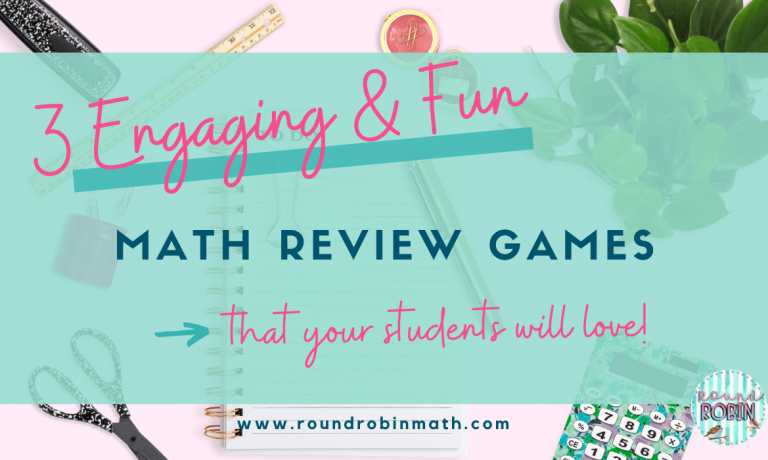Are you looking for fun math review games to use in your classroom? You know the games that your students will want to play over and over again!
Don’t worry I got you, teacher friend! That was me a few years ago until I found my 3 favorite fun math review games that I can’t wait to share with you today!
I have used these games multiple times throughout the years!
What I love most about these review games is that they require very little materials! All you need is a set of practice questions/problems and you’re good to go! My students ask me to do these over and over.
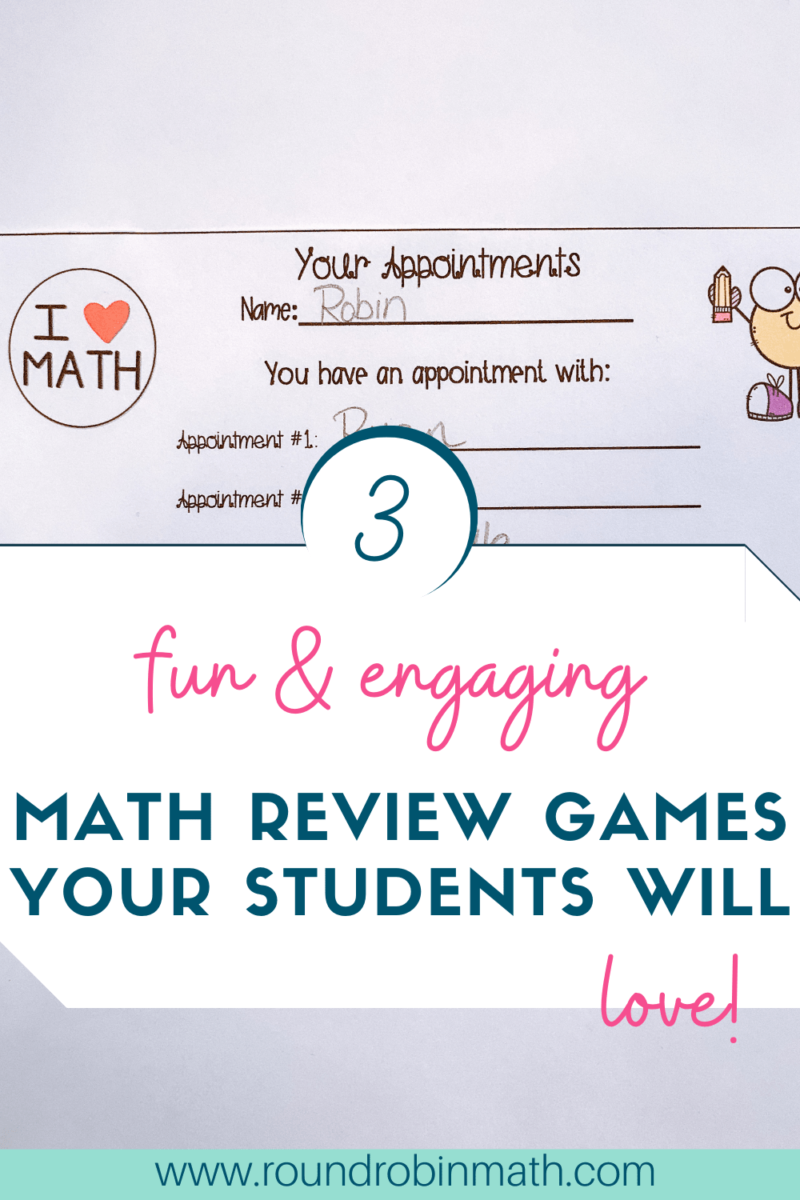
Fun Math Review Games in Classroom
Here are my top 3 games that I love to do in my classroom:
- Appointment Card Activity
- Math-Eye
- Survivor
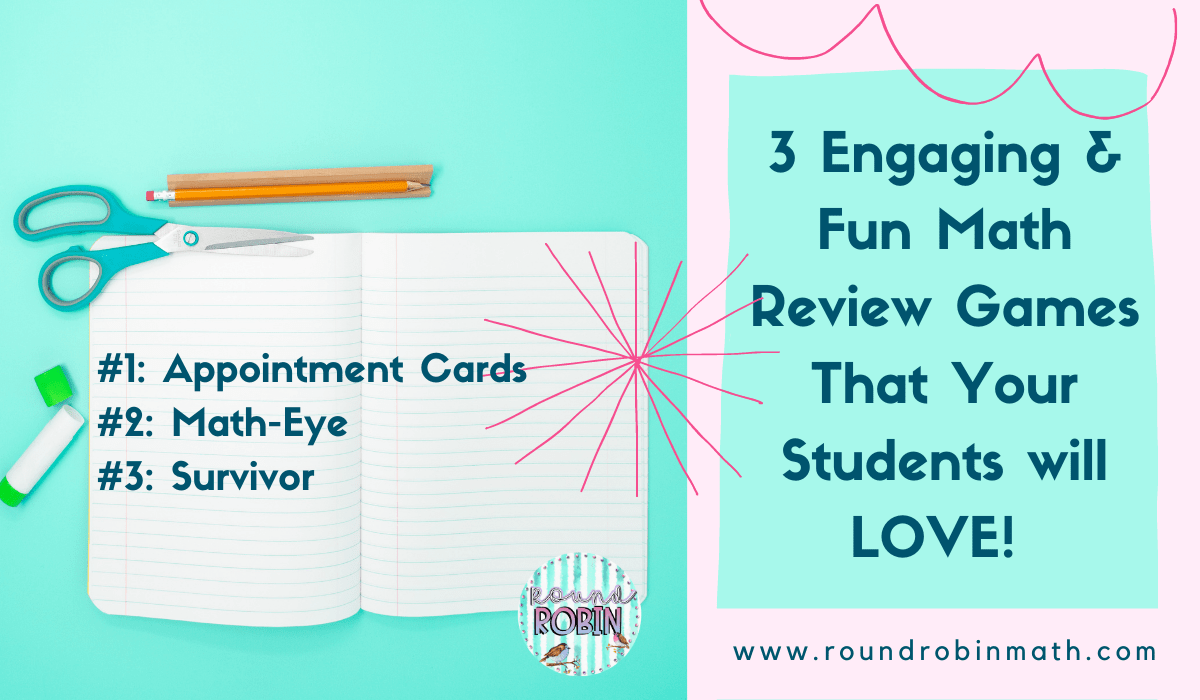
Fun Math Review Games for Middle School & Fun Math Review Games for High School
Appointment Card Activity
So what exactly is an Appointment Card Activity?
An Appointment Card Activity is a spin on the traditional Stations Group work idea with partners. However, with this activity, the idea is that students will make appointments with each other.
In my review games, there are 8 cards so the students will make appointments with a different classmate for each of the 8 appointments. What makes this a fun and engaging activity for the students is that they get to pick who they want to work with!
There are 2 different methods that you can do with this fun math review game.
The first method is that each card can go to different stations for a total of 8 stations.
For example Card 1 will be at Appointment #1 (Station 1) and the student will work with whoever they chose to work with at that appointment.
In method 1, I also go through and pick 8 students to start at different stations and then have their partners find them, so they all don’t start at Appointment #1.
The second method is that you can hole punch each card and put it in a ring clip (optional) and have students move around their desks and form their workstations. You can also keep the 4 cards on each sheet and have students use clipboards as well. I have done both ways and students seem to enjoy both methods.
I usually give the students 5 minutes to plan their appointments before they get started at the stations. Also, I always make myself an available appointment in case students are having trouble finding partners.
I also set a timer for 5 minutes for each station. Each card shouldn’t take longer than this allotted amount of time, so for a fun “race”, setting a timer always motivated my students to get busy!
If you’re not into timers, I have found that some partners may linger longer than others, so a timer just helped move my students along. If they don’t get finished with the questions on the review cards, then I have them finish them on their own time if they want the extra review.
Check out my Appointment Card Activities here:
Expressions and Functions Activity
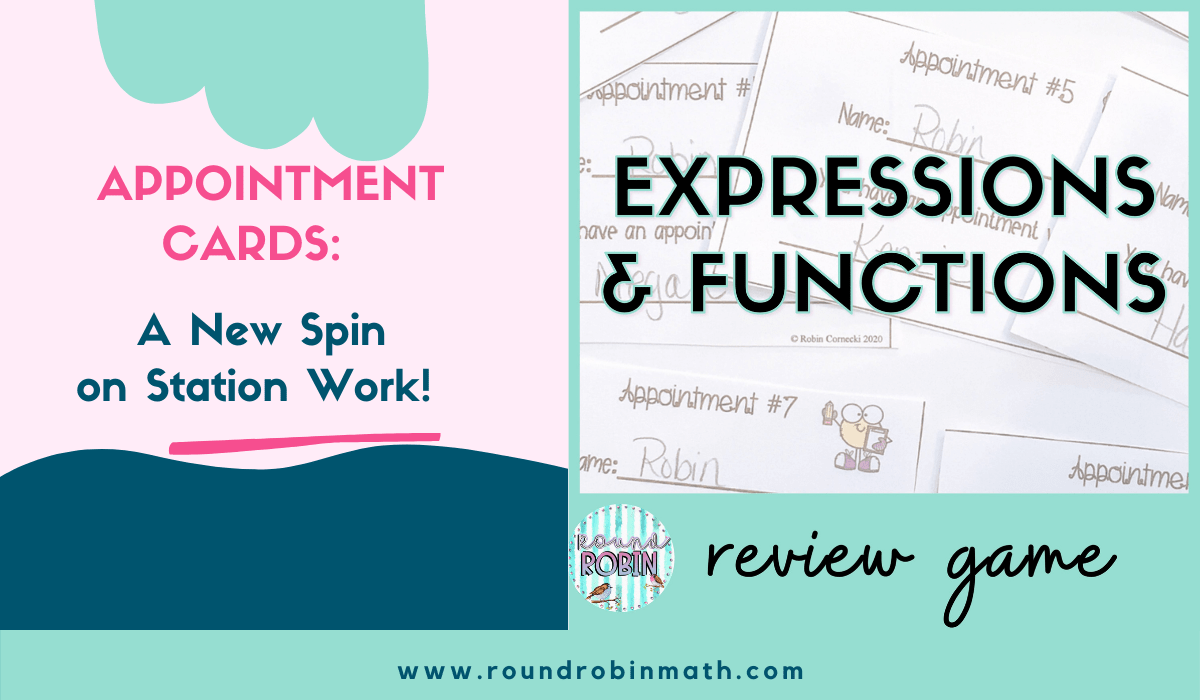
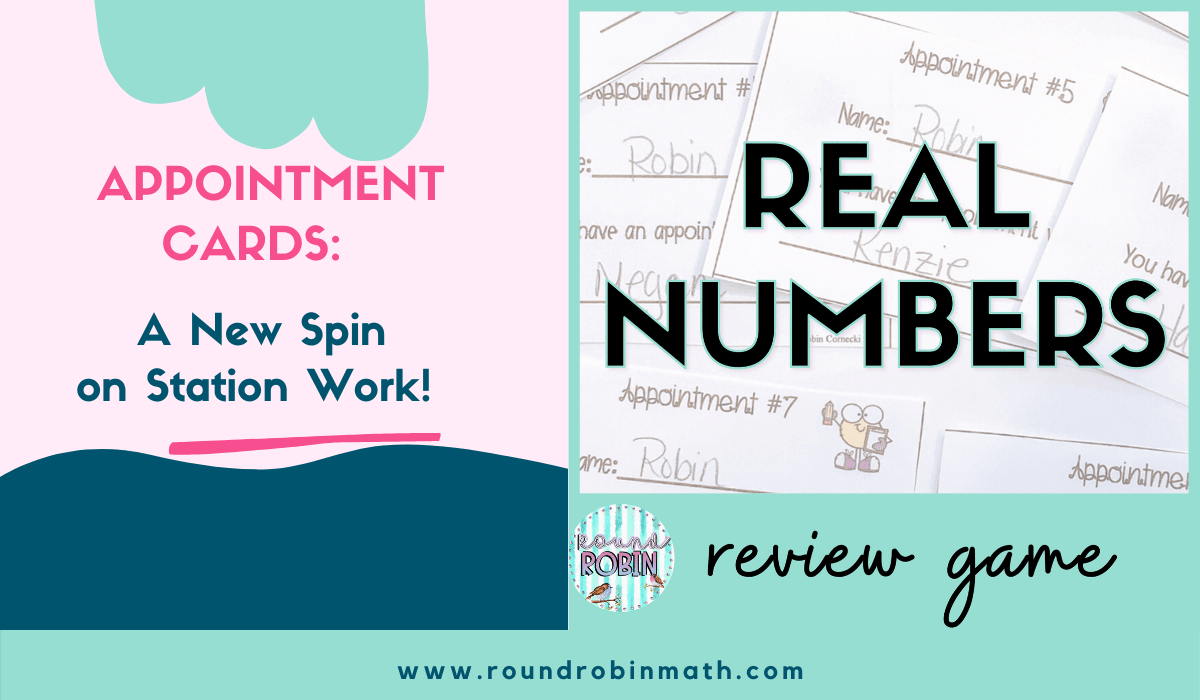
Check out the Editable Version here:
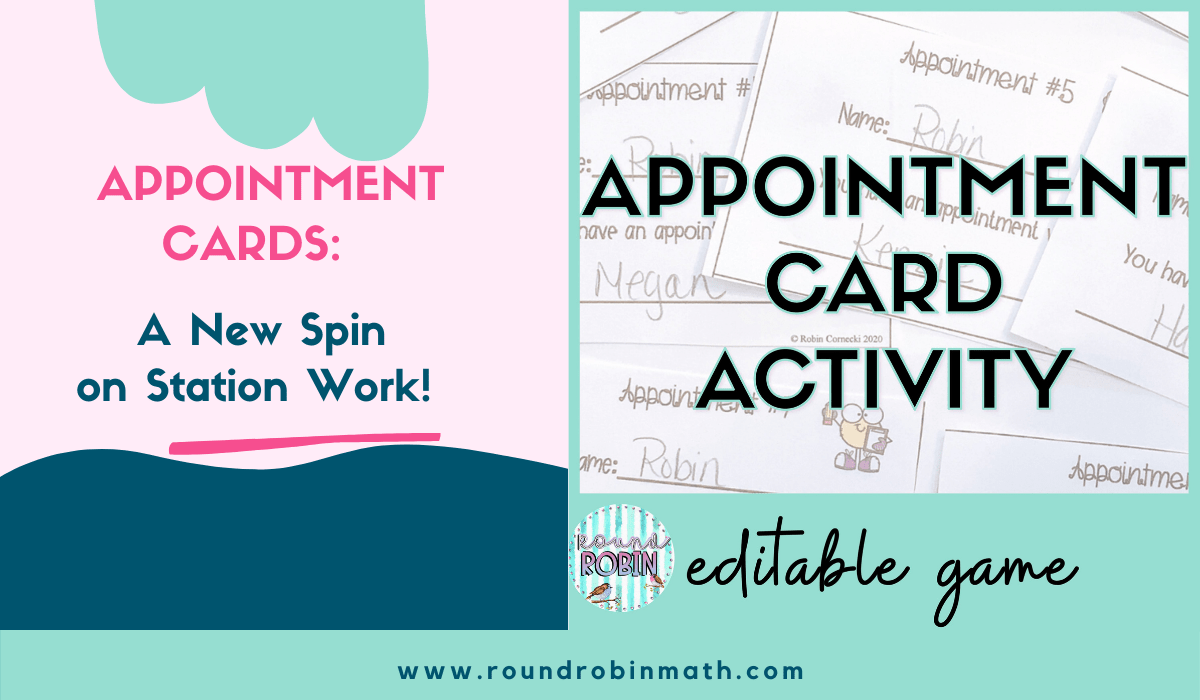
There are 5 problems on each card for a total of 40 different problems. You can print out and laminate each card so that it will last longer. There are also response sheets and 2 styles of appointment cards.
The first appointment card style has 8 separate appointment cards where students can either cut out each appointment and then staple them to their response sheets so that you can see which students worked together.
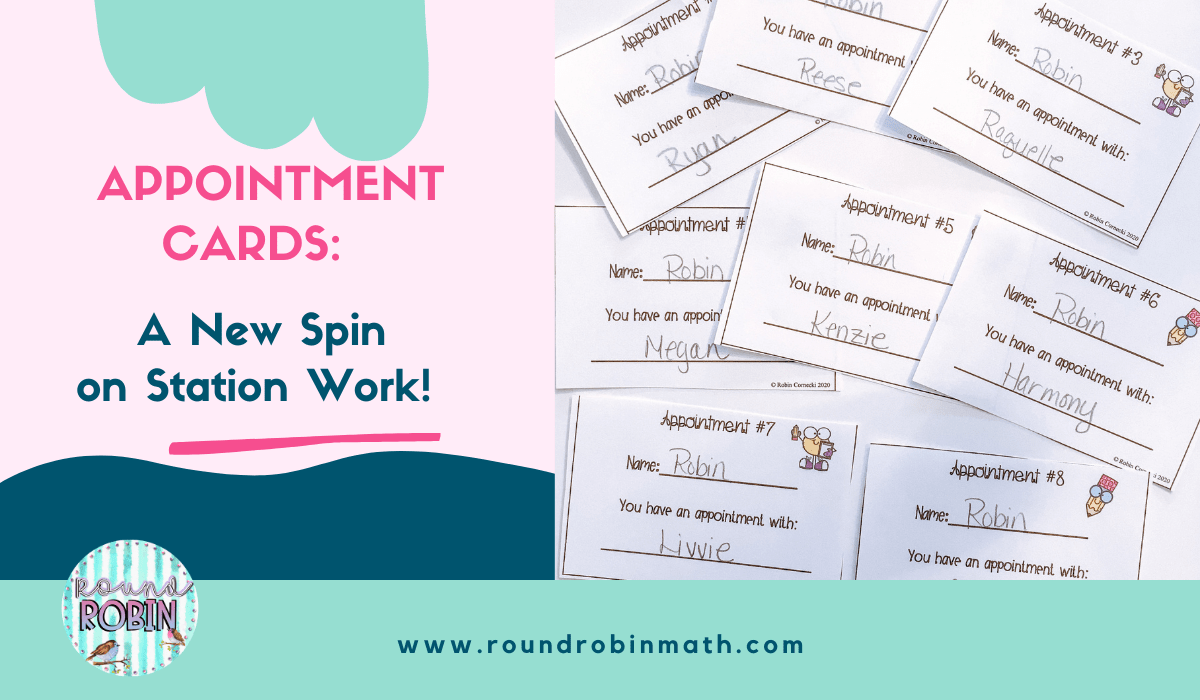
The second appointment card style has the appointments all on 1 card where the students can then just staple one card onto their response sheets.
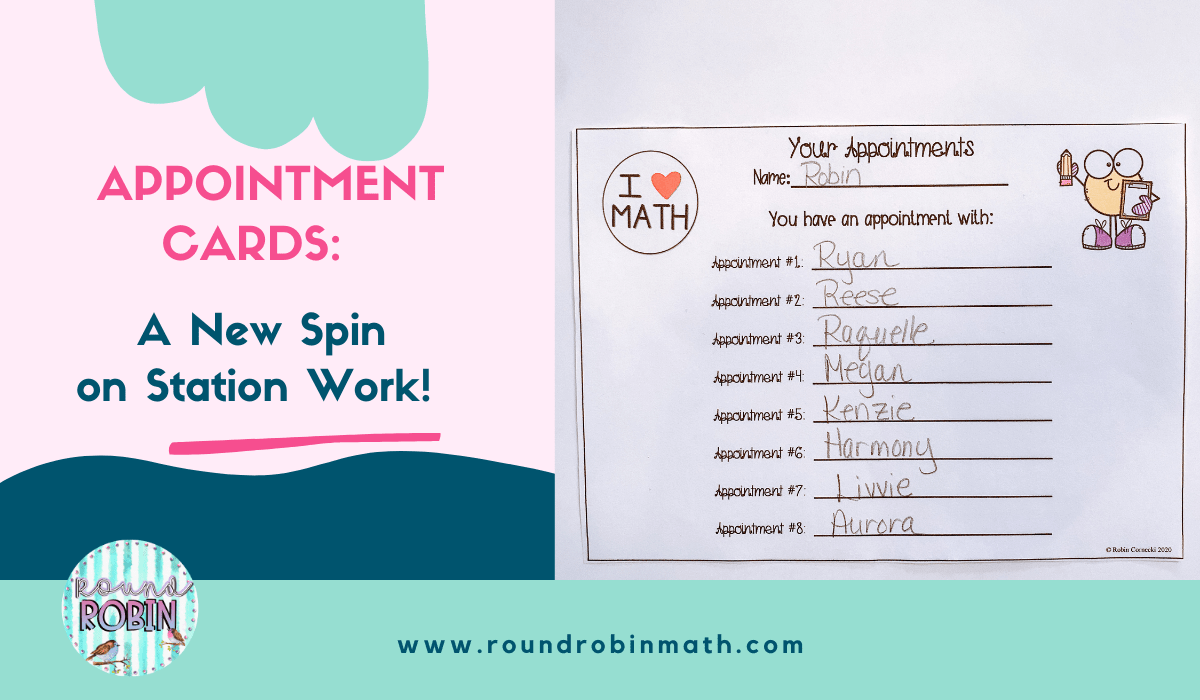
Suction Cup Ball Throw – Math-Eye
This is one of my favorite games to use in my classroom and my students love it!
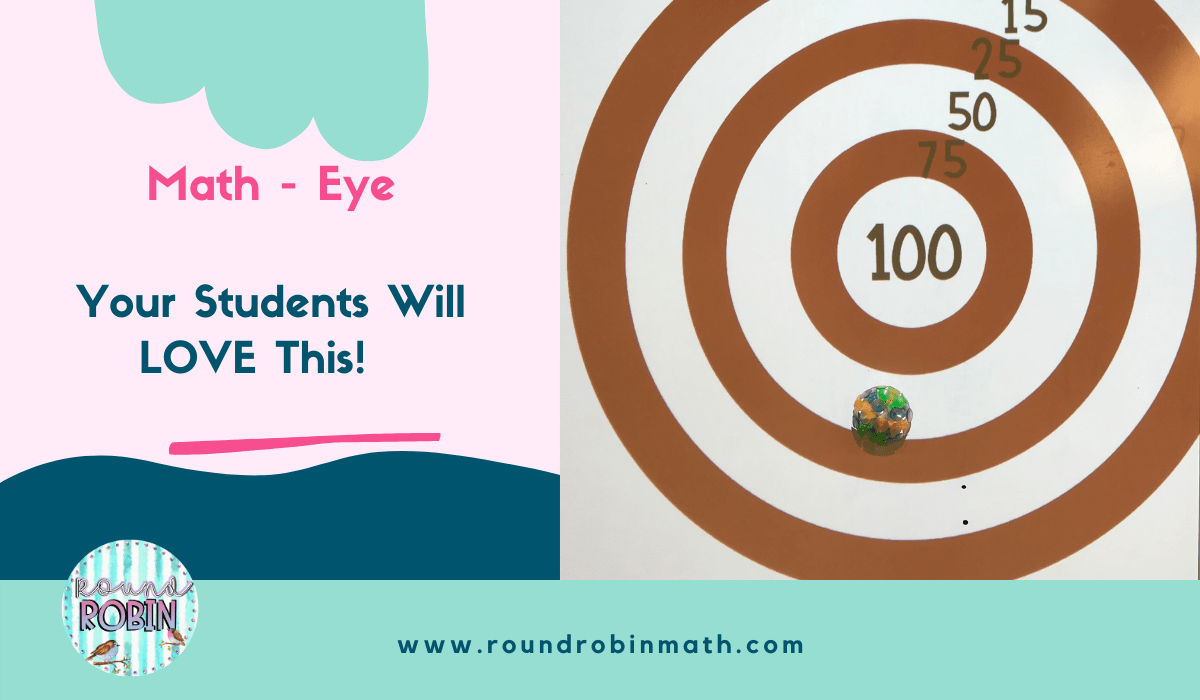
Materials Needed: All you need is a set of practice questions, a suction cup ball, a random number generator (I use my calculator or you can find one on Google), and a
target projected onto your board.
You can find the suction cup balls at Dollar Tree or on Amazon.
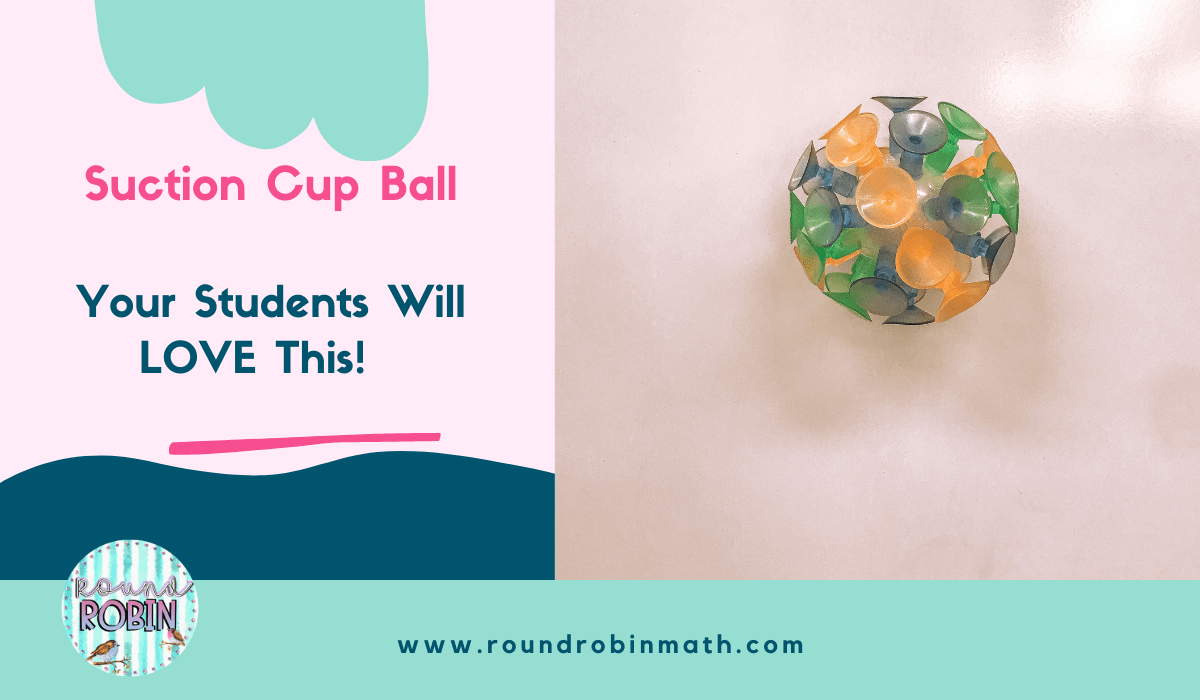
Here is how I play this game:
Step 1: Divide your class into teams. However many teams you want to have is fine. I usually just have 2 teams because my class sizes are smaller.
Step 2: From those teams, you assign each student a number.
For example:
| Team 1 | Team 2 |
| 1. Bobby | 7. Megan |
| 2. Jacob | 8. Kenzie |
| 3. Corbin | 9. Olivia |
| 4. Gus | 10. Harmony |
| 5. Alyssa | 11. Matt |
| 6. Tessa | 12. David |
So Corbin is #3, Harmony is #10, and so on.
Step 3: Write or project a question onto the board. I usually just write the question on the board or project it on there along with the target.
Step 4: Every student begins to work on the question. At this time the students do not know which team or student is going to get called.
Step 5: Pick a random number using your calculator or a random number generator (Google). You could also write your students’ names on popsicle sticks and pull them from there!
Once a number is chosen, this student on the team has to answer the question correctly. So let’s say I randomly pick #5.
Alyssa needs to be ready to go and answer the question.
Step 6: If she is correct, then she gets to throw the suction cup ball at the target and win points for her team!
If she answers incorrectly then it automatically goes to the next team number and I pick a new number.
Therefore, teams should be working collaboratively together to make sure they all know how to do the problem and have a correct answer.
Every person on that team needs to do the problem and be responsible for answering the question because you never know who’s number is going to be called.
Step 7: Go to the next team and pick another number to start the process again!
Important tips: Encourage students to not shout answers! The only way they get to answer and throw the suction cup ball is if their number is chosen and they answer correctly. If they answer incorrectly then it automatically goes to the next team in line.
So if Team 2’s member answers incorrectly it goes to Team 3 and so forth. You also go through and choose the next team after a team gets an answer correct. So either way, you’re moving through the teams in order to ensure every team has a turn.
In summary: If students answer correctly they get to score points for their team by throwing the suction cup ball. The next question moves to the next team. If the student answers incorrectly, a new number gets called and the same question is answered. Depending on if they get it correct or incorrect determines your next step.
Overall team with the most points wins!
Every person throws the suction cup ball at the same place in the room! I also put a ruler down on my floor so they know where to stand! You could also use some sort of decorative tape!
My students absolutely love this and they ask me if they can do this every single time we review for a quiz or a test!
A quick note with using a random number generator. If a number is picked that I don’t need because it’s the other teams’ number, I just keep picking until I get the right number group for that team. This way I don’t have to be constantly inputting a different range of numbers each time. So if you have 20 students, just put 1-20 in your random number generator and pick the numbers. When you get a number you don’t need because it’s not that team’s turn, just pick another number. It also goes faster this way!
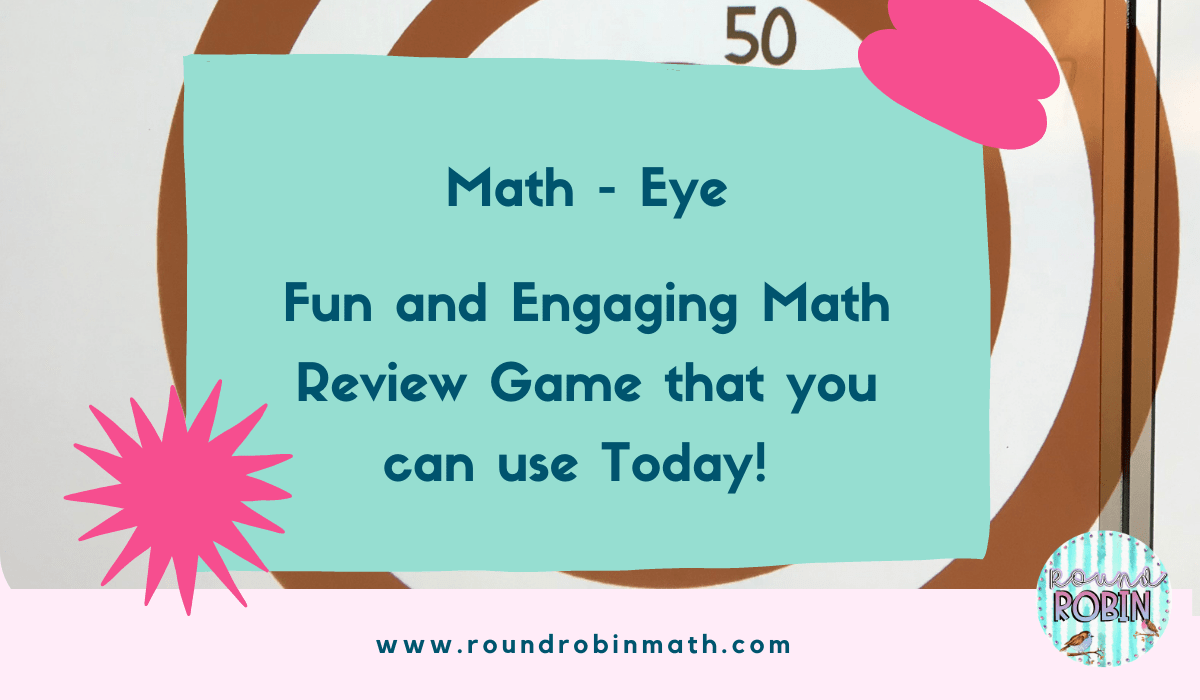
Survivor
Do you remember the show Survivor? This review game is similar where they have to be the last team standing on the “island”.
This game is played very similarly to the suction cup ball game, except this time instead of throwing a suction cup ball, they are voting students or teams off of the island.
Materials Needed: All you need for this review game is a set of practice questions, a picture of an island or you can just draw one, and a random number generator.
Here is how you play this game: You can do this individually or with teams. It just depends on your classroom culture and how comfortable you feel with the game.
Step 1: Assign students to teams (optional) and give each team member a number, just like you did in the suction cup ball game.
Step 2: Write all the team numbers or students, depending on how you’re playing on the island.
Step 3: Write or project a question onto the board. I usually just write the question on the board or project it on there along with the island.
Step 4: Every student begins to work on the question. At this time the students do not know which team or student is going to get called.
Step 5: Pick a random number using your calculator or a random number generator (Google). You could also write your students’ names on popsicle sticks and pull them from there!
Once a number is chosen, this student on the team has to answer the question correctly.
Step 6: This time when the team or student gets a correct answer, instead of throwing the suction cup ball they get to vote a team or student off of the island. If they are incorrect, they are automatically voted off the island.
The only way to get back on the island is to have their number called again and get their answer correct.
I always just erase their number and put it in the “water” as they wait to see if their number is called again.
Step 7: The last team or student on the island is the winner.
Important tips: Encourage students to not shout answers! The only way they get to answer and vote a team or student off of the island is if their number is chosen and they answer correctly. If they answer incorrectly then it automatically goes to the next team or students number you pick.
So if Team 2’s member answers incorrectly it goes to Team 3 and so forth. You also go through and choose the next team after a team gets an answer correct. So either way, you’re moving through the teams to ensure every team has a turn.
If you are doing it by students only, then you don’t need to worry about rotating through the teams, just keep picking students randomly! I’ll have to say, my students had more fun doing this individually rather than as a team.
In summary: If students answer correctly they vote a student or team off of the island. The next question moves to the next team or random student you pick. If the student answers incorrectly they are automatically voted off of the island and a new number gets called and the same question is answered. Depending on if they get it correct or incorrect determines your next step.
Remember the only way to get back on the island is if their number is called and they answer a question correctly!
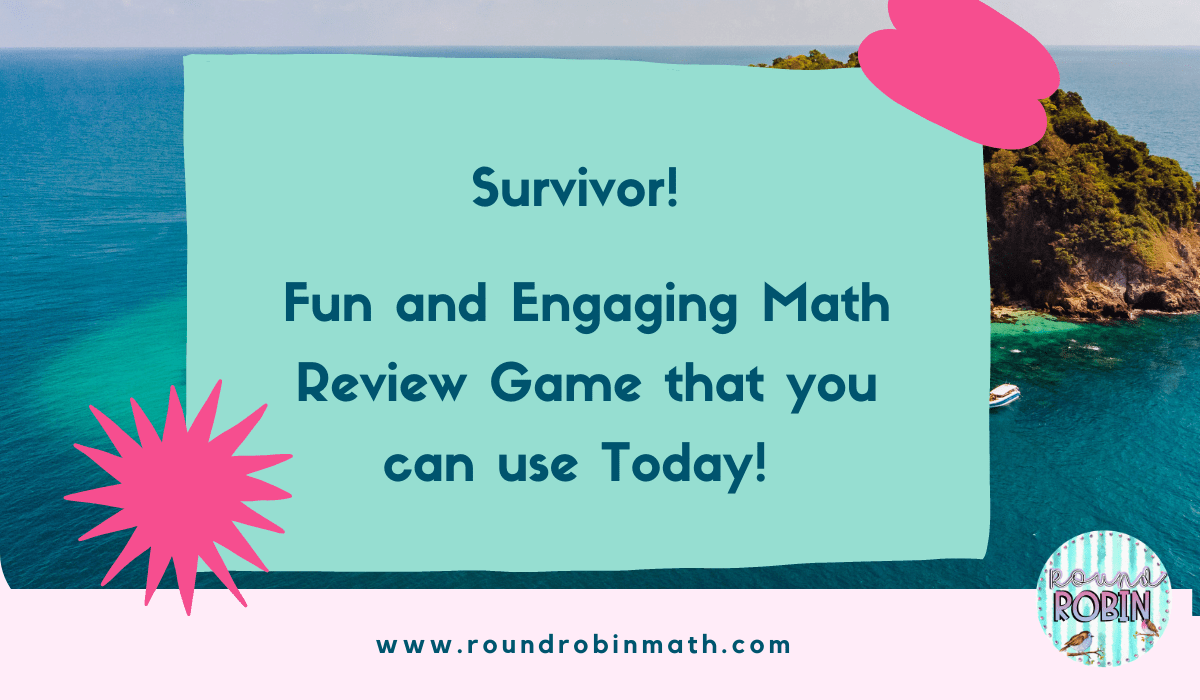
Fun Math Review Activities
I hope you enjoyed my 3 favorite fun math review games that my students loved! Looking for even more inspiration when finding fun math review games?
Check out this awesome blog post from Algebra and Beyond!
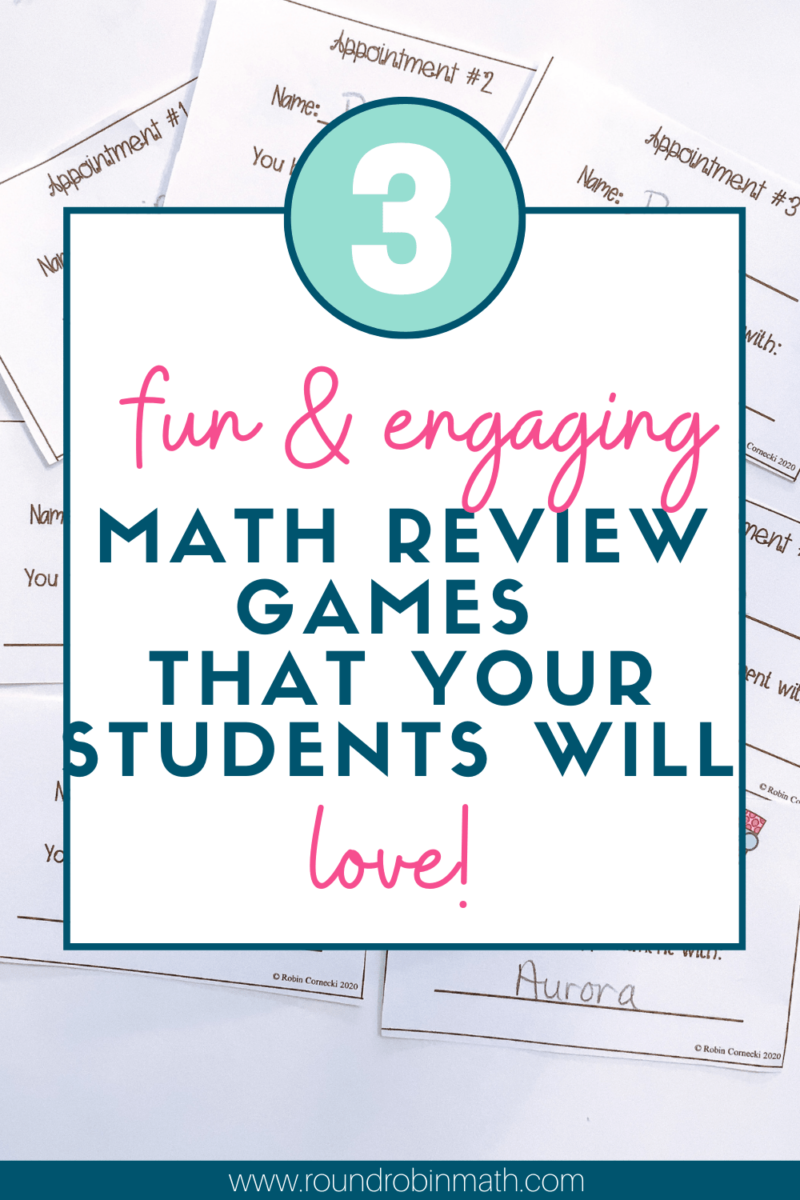
Looking for even more inspiration when it comes to motivating your students in the classroom?
Latest posts by Robin Cornecki (see all)
- The #1 method for finding slope without using a formula! - April 25, 2023
- Here’s a Quick Way to Convert Percents to Fractions and Decimals. - July 21, 2022
- How to use the Four-Function Calculator for the Praxis Core Math Test. - April 23, 2022

